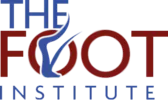Plantar fasciitis represents a medical issue of the occurrence of pain in the area of the heel bone (mostly under it) and the foot’s arch. It is caused by the irritation of the fibrous tissue that makes up the arch of the foot. A person who suffers from plantar fasciitis often feels discomfort and different levels of pain in the area beneath the heel which are triggered after longer walks and lengthy periods of standing.
Initially, this condition is treated with relatively simple medical procedures. Most common are the short-term procedures which include appliance of anti-inflammatory agents and application of ice which can also reduce the inflammation. Medium-term measures include specialized shoe inserts that correct the way a person walks or stands and exercise which are devised to mitigate the effects of plantar fasciitis. But, unfortunately, with some patients, these measures are not enough. In those cases, shockwave therapy for plantar fasciitis might be considered as a way of take care of both acute pain and further discomfort.
ESWT or Extracorporeal shockwave therapy presents a possible way of treatment for patients with plantar fasciitis that emerged in the recent years. ESWT is especially focused on those who suffer from a chronical variation of this condition and those who depleted other traditional methods. Simply put, shockwave therapy used in cases of plantar fasciitis is a way of delivering shock waves in a focused manner to the patient.
The basic notion behind it is the idea that the same waves produce microtrauma in the area affected by plantar fasciitis. The same trauma then triggers the healing processes of the body, including the formation of the small blood vessels and the increased presence of nutrients in the area that is affected. The same healing process is thought to reduce the symptoms of the condition and also repairs the fibrous tissue that was impacted by the plantar fasciitis.
This treatment has two distinct variations. First one consists of low-energy waves which are completely painless, or produce only slight pain during treatment, which is why they are administered in a larger number (three treatments of more). High-energy waves, on the other hand, include a substantial amount of pain and are administered along with some form of anesthesia. These are administered in a single session.
The reason why shockwave therapy for plantar fasciitis was developed way back in 1996 was the fact that surgically treatment of this condition did not prove to be overly effective. Left with patients with a chronic condition that did not improve after the surgery, medical experts began searching for alternative solutions that would be more effective and less invasive than a regular surgery. At the same time, a surgery requires a long recovery process during which the patients need to rest and restrict their movements. Compared to any form of surgery, even high-energy shock wave therapy for plantar fasciitis produces almost no long-term discomfort. Also, it is important to recognize that ESWT includes a minimal amount of potential side effects, as opposed to aggressive anti-inflammatory medications and especially orthopedic surgery.
Because of these facts, it is clear that those suffering from chronic plantar fasciitis should definitely look into shockwave therapy for a way of easing their symptoms or even completely getting rid of their condition.
